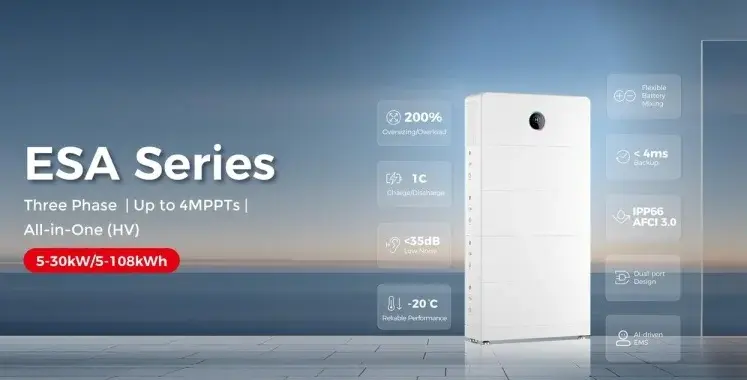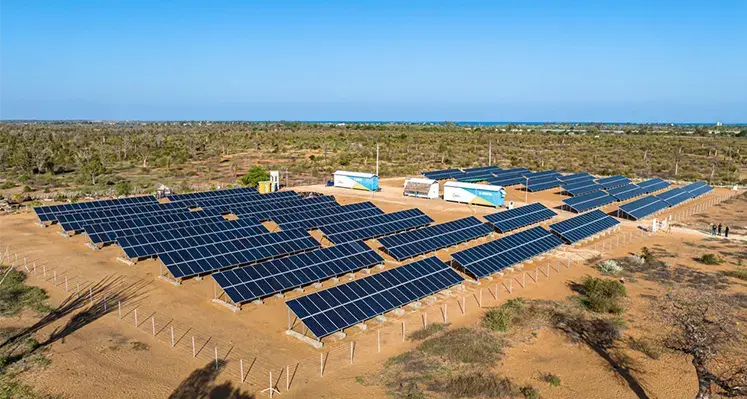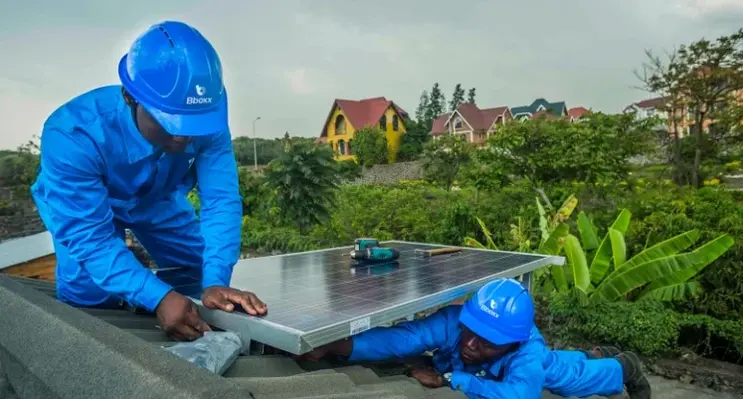
New All-in-One energy storage system targets residential and small C&I users with scalable, intelligent performance. (Image source: GoodWe)
Building on the strong market reception of its single-phase ESA Series, GoodWe has unveiled a new three-phase All-in-One energy solution tailored for residential and small commercial and industrial (C&I) applications
Designed to seamlessly combine solar power generation, energy storage, and intelligent energy management, the new system raises the bar for flexible, high-performance energy solutions, offering greater efficiency, autonomy, and reliability across a wide range of use cases.
Simple installation, flexible expansion
The ESA three-phase solution features a pre-wired, modular architecture that enables fast installation and straightforward commissioning. With one-click configuration and upgrade capabilities, users can deploy the system quickly with minimal complexity.
To support evolving energy needs, the system is compatible with four battery module capacities — 5, 6, 8, and 9kWh, and allows mixed use of new and existing modules with different capacities. This approach enables capacity expansion without replacing current equipment, safeguarding the user’s initial investment.
The system supports the parallel connection of up to 12 battery modules, delivering a maximum storage capacity of 108kWh, while up to six systems can operate in parallel in both on-grid and off-grid modes. With a scalable range of 5–30kW / 5–108kWh, the ESA three-phase solution is well suited to both homes and small C&I environments.
Higher output, lower overall cost
Engineered to deliver strong performance with reduced upfront investment, the system is designed to maximise energy output while controlling system complexity and cost. Dual output ports simplify overall system design by minimising the need for additional components, reducing installation time and long-term maintenance, while also enabling full off-grid operation for enhanced energy independence.
With 1C charge and discharge capability, the system supports faster energy cycling, allowing the same power output to be achieved using fewer battery modules. Support for 21A per string PV input and up to 200% PV oversizing further enhances solar harvesting, helping users increase self-consumption, shorten payback periods, and maintain a stable power supply during peak demand or low-sunlight conditions.
Intelligent energy management for greater value
The system integrates seamlessly with GoodWe’s SEMS+ intelligent energy management platform, turning advanced hardware into measurable user value. Leveraging AI-driven algorithms, SEMS+ forecasts power generation using weather data and dynamically optimises charging and discharging to maximise solar utilisation.
Users also gain access to detailed energy usage analytics and revenue reports, offering clear visibility and control over consumption patterns while supporting both financial savings and sustainability goals.
Safe, quiet, and dependable operation
Designed with safety and comfort in mind, the ESA three-phase solution incorporates AI-powered protection features, including six-layer safety protection and AFCI 3.0 technology to guard against overheating, overcurrent, short circuits, and arc faults.
The system is built for dependable performance in demanding conditions, featuring an integrated heating function for stable operation down to -20°C and an IP66 rating for resistance to dust and water. Smart fan cooling keeps operational noise below 35dB, while ultra-fast backup switching of less than 4ms ensures uninterrupted power during grid outages.
From single-phase to three-phase applications, and from residential to small C&I use, the GoodWe ESA All-in-One series continues to evolve. With its focus on flexible scalability, intelligent cost efficiency, and robust safety, the new three-phase solution sets a new benchmark for energy storage across diverse scenarios.
Looking ahead, GoodWe remains committed to advancing innovation in the renewable energy sector, delivering smarter and more sustainable energy solutions worldwide, and supporting the transition toward a greener, low-carbon energy future.













